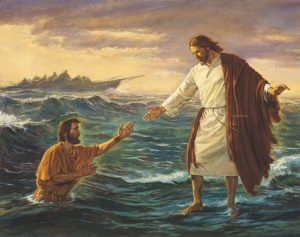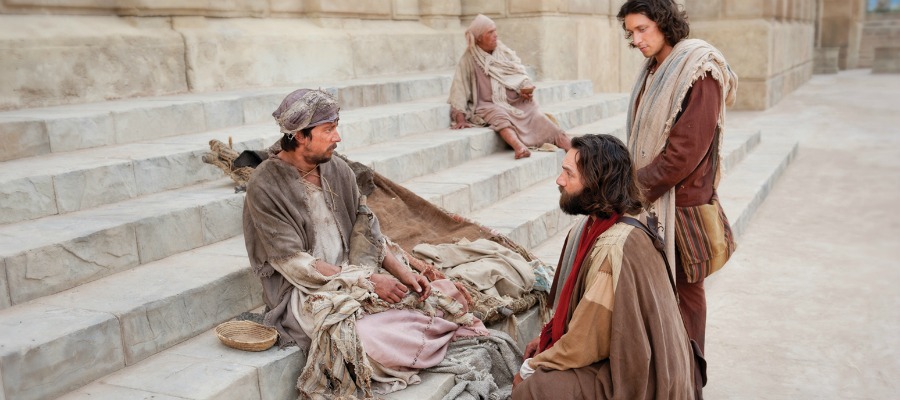What We Might Be Getting Wrong About Peter’s Denial
Peter’s Denial by Carl Heinrich Bloch shows Peter moments after he denied Christ three times. An incident so important, that all four gospels include it. Peter’s deep shame at having denied knowing the Son of God is clear on his shadowed face. We often interpret Peter’s actions as an act of cowardice. How in these final moments he couldn’t stand with the Savior. That he chose his own life over Christ.
But could Peter have had different reasons for his denial?
In 1971, President Spencer W. Kimball gave a talk at Brigham Young University titled “Peter, My Brother.” In it, President Kimball recounts of a time when he heard a minister condemn Peter for his cowardice. But President Kimball could not reconcile this minister’s words with his own beliefs. He saw Peter as a man of tremendous faith and courage, befitting an Apostle of the Lord.

President Kimball recounts times before Christ’s crucifixion where Peter demonstrated tremendous courage and faith. When Christ called Peter to be an apostle, Peter “straightway left [his] nets, and followed him.” When Christ walked on the Sea of Galilee, Peter asked: “bid me come unto thee on the water.” Peter did sink, and Christ admonished Peter for his lack of faith. But none of the other disciples even asked to join Christ on the water. Right before Christ told Peter that he would deny Christ, Peter himself said: “I am ready to go with thee, both into prison, and to death.” Finally, when Christ is taken away to be tried, Peter alone follows his Lord.
So how do we reconcile this chosen man of faith with the man who denied his Savior? President Kimball offers a solution.
“He had been prohibited by the Redeemer himself from resisting the coming crucifixion.”
When Christ said to Peter, “this night, before the cock crow, thou shalt deny me thrice,” Christ didn’t prophesy Peter’s moment of weakness. Christ told Peter that he would need to deny knowing Christ.
So why would Jesus do this, especially when the Book of Mormon states that “the liar … shall be thrust down to hell?” First, we need to understand what President Kimball said:
“Peter did not deny the divinity of Christ ever. He only denied his association or his acquaintanceship with the Christ, which is quite a different matter.”
Had Peter stood with the Savior, the mob would have killed Peter as well. But he didn’t deny his testimony. Peter still had enough faith in his Savior to know he is the Redeemer.
President Kimball suggests that Peter’s bitter tears were tears of understanding. That at that moment, Peter realized that Christ would die and He would not escape the hands of evil men as He had done before. He felt that everything he believed in came to an end with Christ’s death.
But Peter didn’t know what Christ called him to do. Peter baptized three thousand people on the day of Pentecost. He received the vision to baptize the Gentiles. This man wrote two epistles.

Christ needed Peter to continue his work. That is why Christ asked Peter to deny knowing him.
Now, President Kimball didn’t argue that this interpretation is the only interpretation. Neither do I. As a fallible man, Peter was subject to human weakness. His fear at that moment could have overcome his faith. His devotion to the gospel after Jesus’ death could come from the darkness he felt at denying Christ. He can take hope in this interpretation that even if we do sin, we can become better.
I simply want you to think more deeply about this story. To gain a better understanding of Peter’s character, and how we can liken his story to us. Many missionaries serve in countries where they cannot openly preach the gospel. Many who faithfully follow the gospel must face trials they believe impossible, like a terminal illness or a family member leaving the Church. But Christ has a plan for each of us. We may not understand why the Lord asks us to do certain things. But we can take faith in his promise that “after much tribulation come the blessings,” just like they did for Peter.


